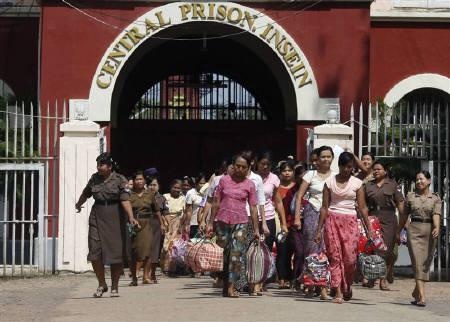Despite the president’s promise to rid Burma’s jails of political prisoners by the end of 2013, a leading advocacy group claims that the number of prisoners of conscience has increased over the past year.
The Assistance Association for Political Prisoners in Burma (AAPP-B) said in a statement on Monday that there are currently 84 political prisoners in the country, while another 122 activists are facing what many believe to be politically motivated charges.
The statement, which is based on data received up until the end of August, predicted that “ the number of political prisoners is likely to continue to increase throughout the remainder of 2014”.
The group said that the rise in political incarcerations is largely attributable to the use of Burma’s controversial Section 18, part of the Right to Peaceful Assembly and Peaceful Procession Act, to convict activists. Despite having been amended in June, rights defenders still say that the law grants too much leeway for authorities.
AAPP-B said that they have documented 28 cases of politically related charges in August, while one political prisoner was released and five were said to have been tortured.
A spokesperson for the group, Khin Cho Myint, told DVB that they hope to see President Thein Sein make good on his promises about prisoners of conscience.
“The president promised to release all of them. He said there would be no political prisoners by the end of 2013. It has been eight months since he said that they all would be freed, but the number is only going up,” she said.
[related]
“We want to see this promise implemented.”
In addition to those that are either in jail or on trial for charges related to activism or other political activity, thousands of farmers nationwide could face charges for land rights demonstrations.
Burma has a rich history of jailing its dissidents. The AAPP-B was formed in 2000 to keep track of and provide assistance to political prisoners and their families, while Burma was still under the heavy handed rule of the military junta.
Following reforms initiated in 2011, President Thein Sein vowed to free all prisoners of conscience, and a series of presidential pardons saw the release of about 1,300 people.
The AAPP-B has pointed out, however, that many of those granted amnesty were shortly re-arrested.
Members of the AAPP-B and other government-appointed figures were chosen to lead a Committee to Verify Remaining Political Prisoners, which identifies those eligible for amnesty. The committee, which was meant to be dissolved after all political prisoners had been released, decided earlier this year that they had not yet fulfilled their mandate.



